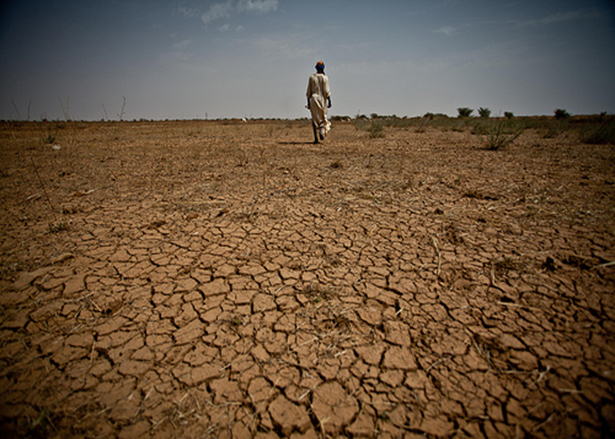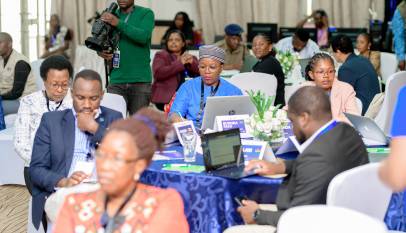OP-ED | How COVID-19 is impacting finance flows for climate resilience in Africa, By John Kasiita Ssemulema
The negative implications of COVID-19 on international climate finance flows in Africa should be a wakeup call to African countries to shift from the model of oversees dependency, especially regarding issues central to Africa’s development such as funding for local climate adaptation and resilience

With the manufacturing aviation and broader transport industry almost coming to a halt globally, the consumption of fossil fuels has reduced substantially, consequently leading to reduced greenhouse gas (GHG) emissions worldwide. Positive as this might sound for climate change mitigation (at least in the short term), Covid-19’s impact on climate change resilience looks rather negative.
This is particularly worrying for Africa whose vulnerable economies and communities require an urgent need to adapt to various impacts of climate change that are ravaging the continent. Availability of Climate finance, adaptation finance to be specific, plays a major role in the ability of any country to implement interventions towards climate resilience. It is important at this point to acknowledge that pre-existing challenges like limited financing for climate resilience will now be compounded especially as all attention shifts to fiscal measures to restart the economy at national and global levels.
According to the Climate Policy Initiative’s Global landscape of Climate Finance report 2019, adaptation finance accounted for only 5% of the entire average annual global climate finance flows of USD 579 billion for the period of 2017-2018. As it has traditionally been, almost all the adaptation finance came from public sources through domestic, bilateral and multilateral development institutions, with grants as the financing instrument for almost the entire bulk of the money.
Most of such finance towards climate resilience in Africa and other vulnerable parts of the world originates from the OECD member countries; same countries are currently counting severe losses to their economies as a result of the Covid 19 pandemic. Understandably, most of these countries might choose to focus their resources domestically to deal with the post COVID-19 negative impacts suffered by their economies. In a scenario like that, out-bound funding towards climate resilience would not draw the necessary attention, to the detriment of many African countries.
There is shortage of information regarding domestic funding towards climate resilience for most African countries. However, indicators show that African countries cannot meet their own cost of adaptation without compromising funding to other essential sectors of their economies. For instance, a study by ODI in 2013 showed that amidst recurrent climate impacts like drought, floods, heat waves and landslides, Uganda’s on-budget spending for climate change was not more than 0.2% of its GDP, contrary to the estimated 1.6% of GDP required for the country’s climate-relevant activities.
Domestic funding from national budgets of African countries towards climate resilience in the post COVID-19 era is expected to dip further considering the loss in government revenue for many of the countries on the continent. The World Bank’s Africa’s Pulse report 2020 estimates that sub-Saharan Africa could experience combined losses of between USD 37 – 79 billion resulting from reduced financial flows from tourism, foreign direct investment (FDI), official development assistance (ODA), remittances, commodity exports and increased capital flight.
According to the African Union, at least 20 of its 55 member countries have tourism contributing 8% or more to their GDP. With much of this tourism based on natural resources, payment for ecosystem services has been a way of mobilizing adaptation finance for such countries. In that regard, decline in tourism revenue for most African countries has a direct negative implication on the availability of adaptation finance and consequently climate resilience in those countries.
The negative implications of COVID-19 on international climate finance flows in Africa should be a wakeup call to African countries to shift from the model of oversees dependency, especially regarding aspects central to Africa’s development, like funding for local climate adaptation and resilience. Moving forward, African countries will have to prioritize domestic funding towards their own climate resilience. Mainstreaming climate change into national planning and budgetary processes is a more sustainable approach for ensuring domestic financial allocation to climate resilience in Africa.
By John Kasiita Ssemulema, is a technical advisor on climate change at the German development corporation (GIZ) in Uganda. The views expressed in this opinion article are those of the author and do not necessarily reflect African Newspage’s editorial policy.












